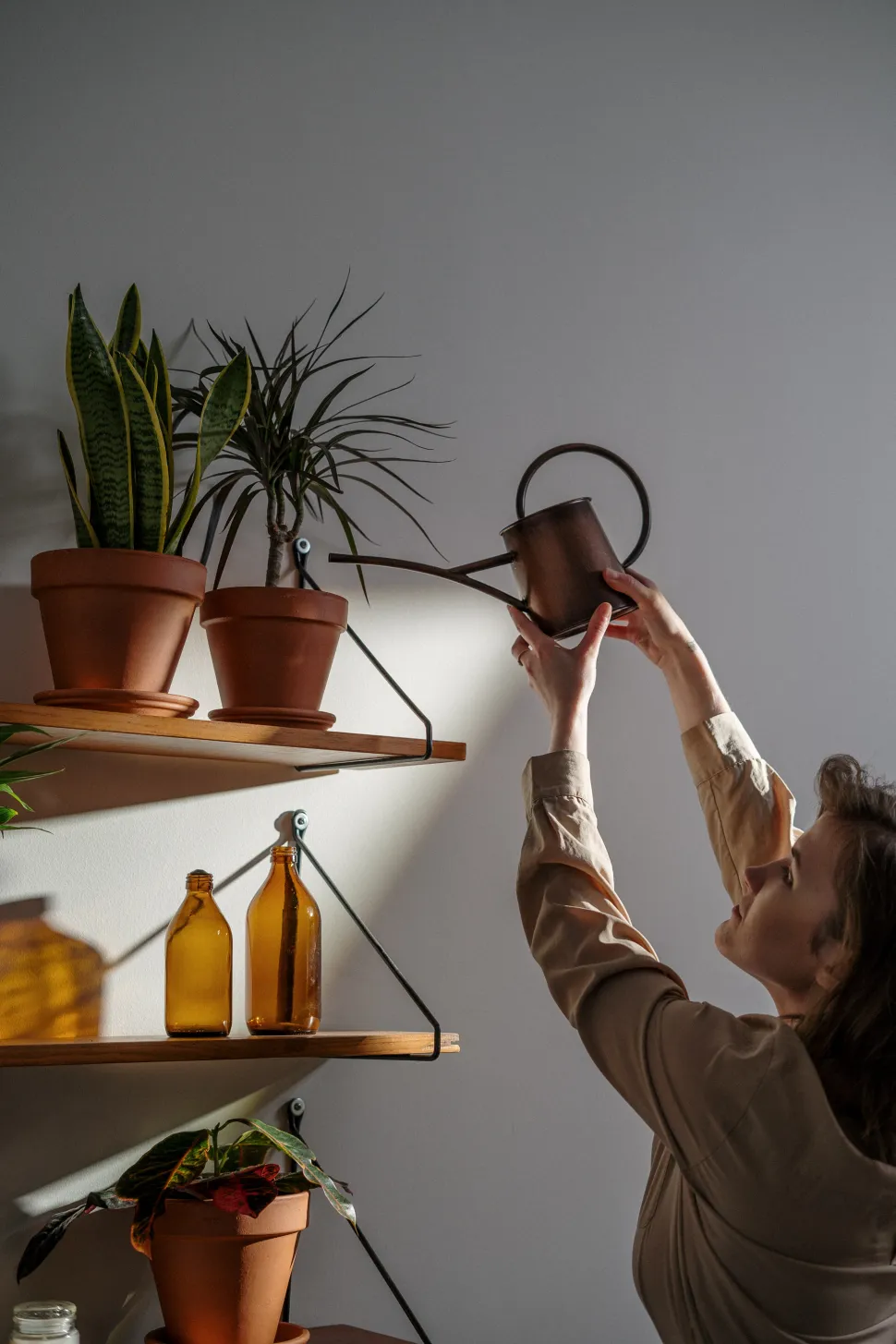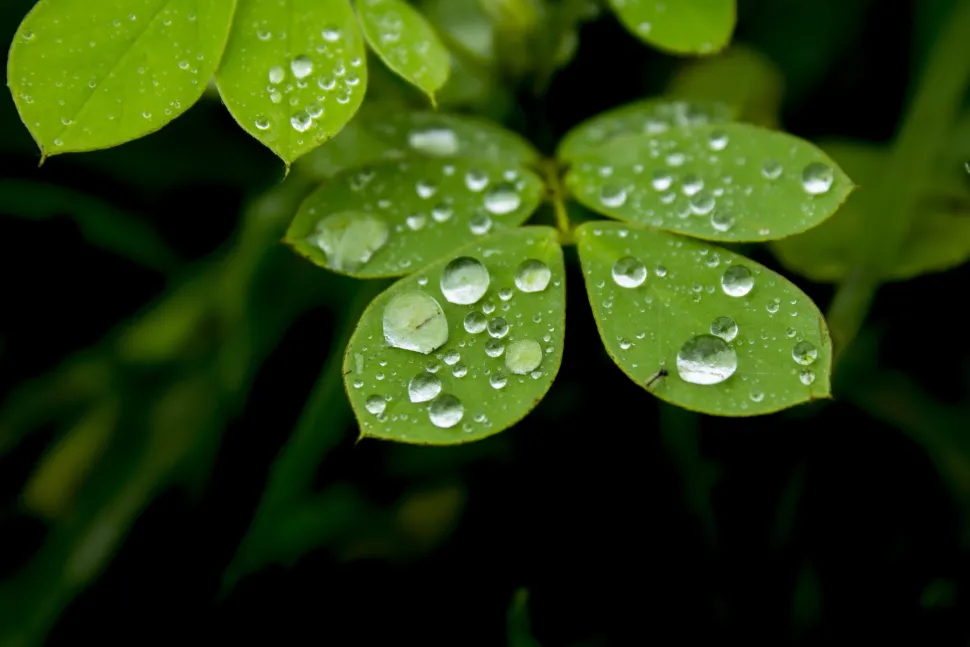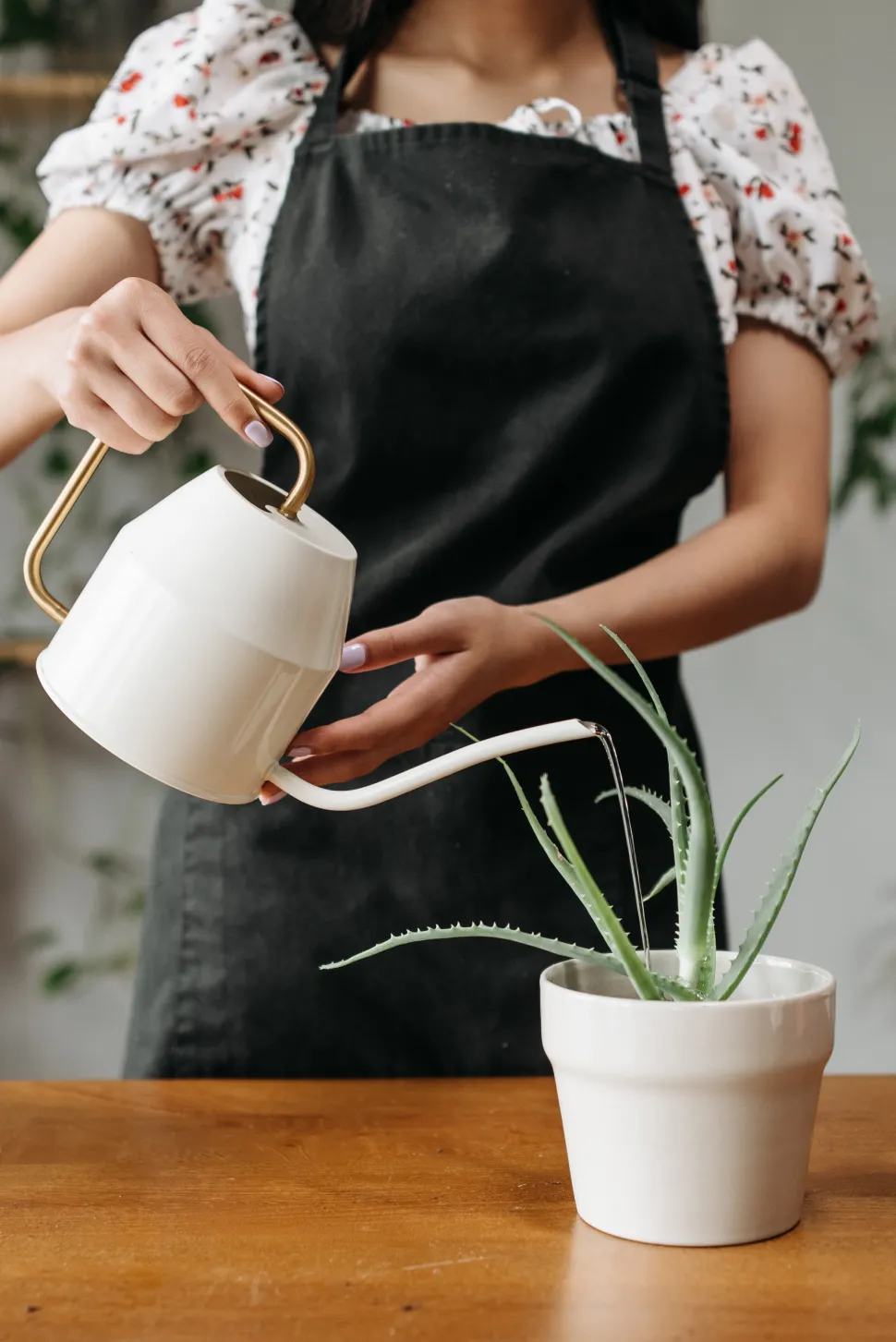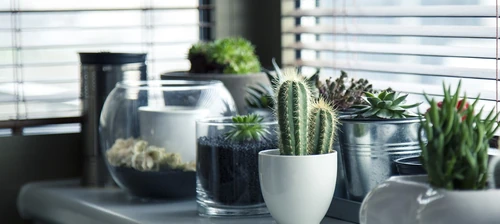
How should I water my indoor plants?
Article for :Beginner and plant killer
Article summary
In their tropical forests, monstera deliciosa and strelitzia reginae take advantage of downpours to fill up on nutrients. In the desert, cacti and succulents swell their leaves and roots with water at the slightest shower. But what about our homes? Discover the best water for your houseplants, our advice and the mistakes to avoid.
The golden rule: use water at room temperature
The first tip to avoid killing your houseplants when watering them : always use lukewarm water. Like us, plants are sensitive to extreme temperatures. Heat and cold damage their roots and slow their growth.
To make sure the water is at room temperature, leave your watering can full for an hour or two in the room where your pots are.
Favour rainwater

With rainwater, you're sure to get it right
If you've downloaded the Monstera app, you'll have noticed that we always recommend watering your protégés with rainwater. It contains the micro-organisms and nutrients necessary for healthy plants.
What's more, while rainwater is polluted and unfit for human consumption, it contains no elements that are toxic to plants (unless you live next door to the Springfield nuclear power plant).
And rainwater is free. To last all year round, remember to store your harvest in bottles.
If you have a garden, a water collection system coupled with a gutter will allow you to harvest enough water to irrigate your entire jungle. In apartments, it's more complicated. But there are tricks you can use to fill up on water. You can install containers, a tarpaulin or rain chains to collect water on your balcony or windowsill.
Perfect for watering, rainwater is also perfect for misting. If you're in the habit of spraying your plants' foliage to increase humidity, you can do the same with water from the sky.
Can I water my green plants with tap water?
Tap water is suitable for most species - Photo by Kaboombics / Rawpixels
But it can be difficult to water everyone with rainwater when it hasn't rained a drop for weeks.
If you're dry, turn to mains water. Easy to obtain and inexpensive, tap water is an alternative to rainwater, provided you take a few precautions.
First tip: never water carnivorous plants (which are among the 10 hard-to-care-for plants you shouldn't put in everyone's hands) with mains water. This recommendation also applies to other calciphobic varieties, such as ferns and acid-loving plants, which do not thrive in calcareous soil.
The main drawback with mains water is its composition. It provides some of the nutrients essential for plant growth, such as calcium, magnesium, phosphorus and iron. But chlorine and limestone are often present in quantities too high for potted plants. Too many mineral salts are not absorbed, hindering sap circulation, leaf development and flowering.
But it's better to water your plants with tap water than see them die of thirst! If you use this solution, let the water stand for a day before use. This gives the chlorine time to evaporate. You can also filter the water. However, avoid using softened water, which is too rich in sodium.
If mains water works for watering, forget about using it for misting. It leaves white marks on the foliage.
Do green plants like mineral water?
If your water is too hard or too chlorinated, you may be tempted to invest in bottled water.
Natural spring water contains the minerals (sulfates, calcium, potassium and sodium) essential for plants. Its composition is similar to that of tap water, but it contains no chemicals or preservatives (such as chlorine). If you have a large gardening budget and the water in your area is too hard or chlorinated, spring water is an alternative to rainwater.
As its name suggests, mineral water is rich in minerals, notably sodium, calcium and magnesium. Their concentration is too high for our houseplants. We advise against watering with mineralized water. It slows down the growth of your plants and may, in time, cause them to die.
Demineralized and distilledwater are not loaded with minerals. They moisten the substrate, but do not nourish the plant. They are therefore unsuitable for most varieties. However, it is recommended for species which, like carnivorous plants, do not receive their nutrients from the soil, and for misting.
What about the rest?

Are you tempted to water with something other than water? Better not - Photo by Rocketmann team / Pexels
The web is full of tips on how to improve plant growth by watering with anything and everything.
Let's not forget that, in their natural environment, plants consume only water. No soda and even less alcohol. While pouring the bottom of your glass of sparkling water into your Pothos ' pot won't kill it, don't make a habit of it. Like mineral water, sparkling water is too rich for our green plants.
Does your colleague extol the virtues of watering with tea? Does your janitor grow her gourds at home by watering them with milk? Does your astrologer swear by coffee grounds? Maybe so. It would seem that the first stimulates foliage and the other two are antiseptic. But tea, coffee and milk also contain substances that are harmful to plants. And unless you have a thorough knowledge of soil pH and the type of soil best suited to each variety, don't do it. Finally, while these techniques may work well in the garden or vegetable patch, they should not be used in pots. Excess nutrients and undesirable elements cannot be removed from the substrate.
By Servane Nemetz
the 20-03-2023 à 06h37
the 20-03-2023 à 06h37












